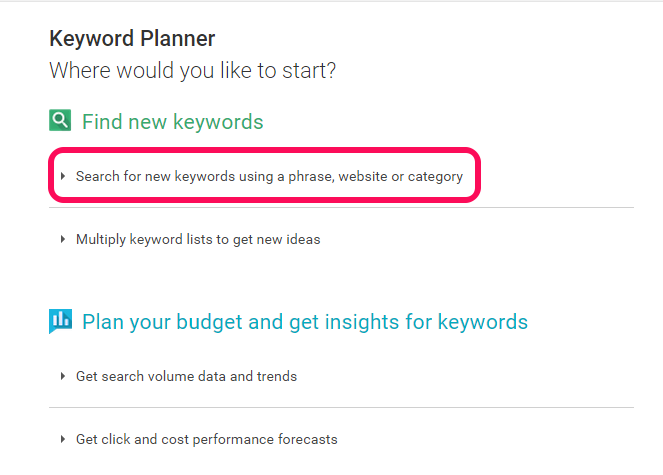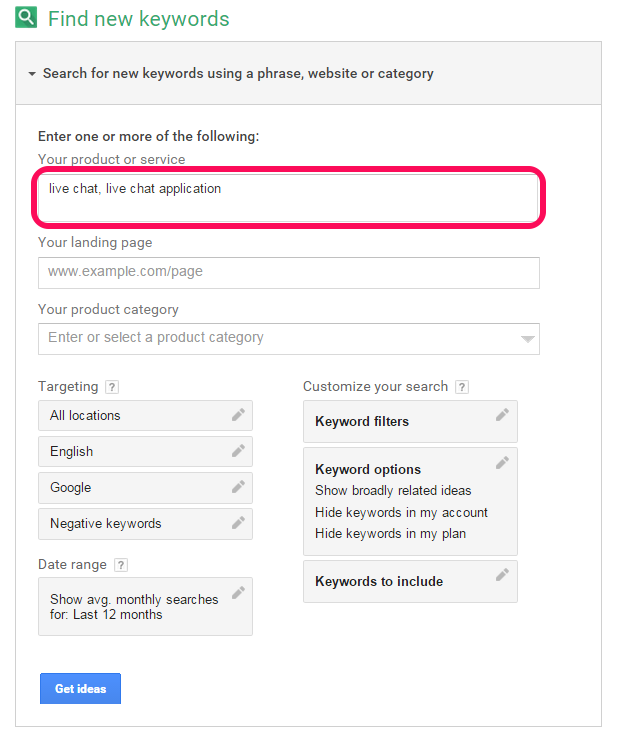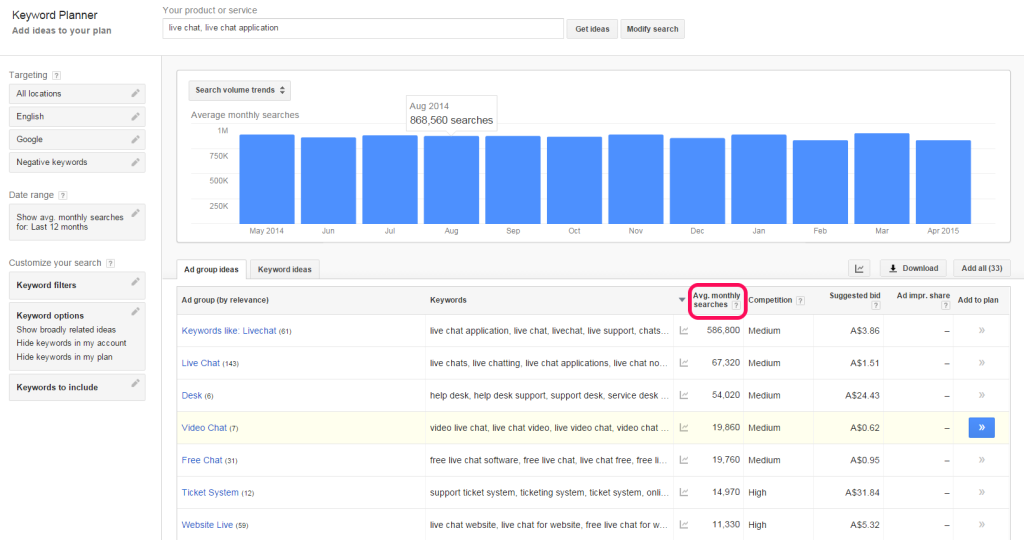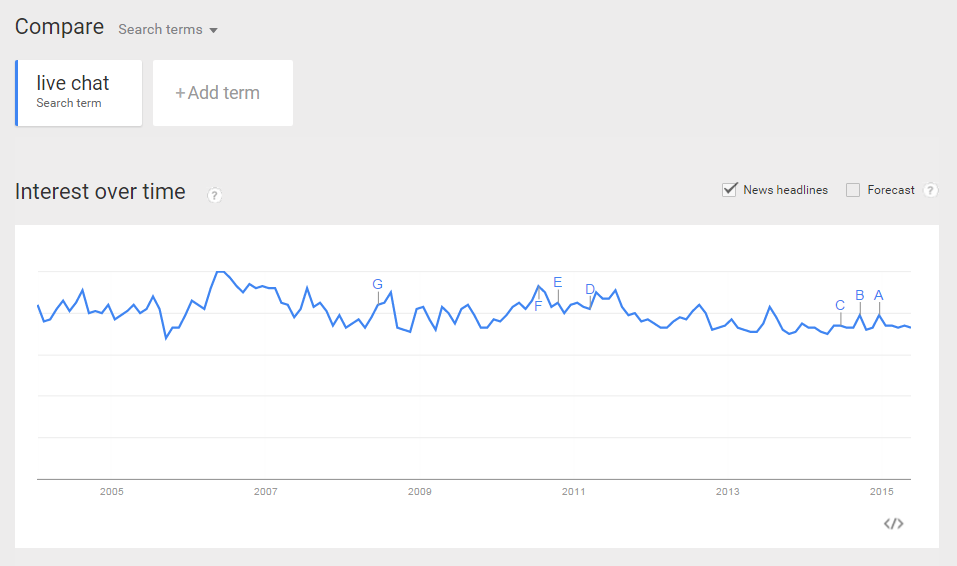Do keyword research is to find all relevant and effective keywords that users use to search for a product/service on search engines, Google and Bing for example.
You can easily write down some keywords which appear on your mind now, however, doing keyword research will help you come up with and narrow down a list of terms you should be targeting. Hence, you will be able to establish and execute a strong keyword strategy.
1. Understand your business
Before doing keyword research, you definitely need to understand deeply about your business, including your target customers and your product/service. Because without acknowledging of this information, you can’t know which keywords are the best for your search engine optimization.
2. Creating your seed list
To kick off this process, think about some topics relating your business. Then use a combination of brainstorming and investigation to fill out the list with keywords.
Brand terms. People who are familiar with your brand already are likely to convert on your website. Starting your keyword list with the name of your brand is an ideal.
Although this keyword does not produce the most impressions or page views, but it normally has the highest conversion rate (in both paid and natural search).
Product terms. Another term should be added to your keyword list is product terms. This is what you sell and what issues it solves. If your business is new and not many people know it, you should target your product name which is normally searched by users when they want to buy product/service.
Although the conversion rate of this keyword is not as high as that of brand terms, but ignore it, you will lose at least 80 percent of traffic and customers.
Competitor terms. By doing keyword research, you will identify who are your competitors. Selling the same product/service make your business have to compete intensively with other businesses. There is double to add competitor terms in your keyword list.
Audience terms. This is all other keywords that people in your target audience might be searching for. It can be a huge list with a wide range of categories. You can get this list from the search term report of past visitors to your website.
Although CTR and conversion rate of these keywords are low with high cost per conversion, but there is a chance of getting sales from these keywords.
3. Building your keyword list
It’s time to expand your keyword list by using keyword research tools. There are so many tools you can take advantage, but the most powerful tool you should use is Google Adwords Keyword Research Tool (Google Keyword Planner).
The majority of online traffic comes from Google, so finding the right keywords with an estimated traffic by the authority is a good way.
 In Google Keyword Planner, you will click on “Search for new keyword and ad group ideas” and enter the seed words you want to get a list of relevant keywords. For example “live chat”, “live chat application”,…
In Google Keyword Planner, you will click on “Search for new keyword and ad group ideas” and enter the seed words you want to get a list of relevant keywords. For example “live chat”, “live chat application”,…
 After clicking on “Get ideas”, you will see a list of Ad group ideas and Keyword ideas with “Avg. monthly searches”to sort the queries from most sought-after to least.
After clicking on “Get ideas”, you will see a list of Ad group ideas and Keyword ideas with “Avg. monthly searches”to sort the queries from most sought-after to least.
 Remember to choose “Location” in order to get the correct avg. monthly searches because Google will base on the search volume on certain place to show the information in Google Keyword Planner.
Remember to choose “Location” in order to get the correct avg. monthly searches because Google will base on the search volume on certain place to show the information in Google Keyword Planner.
Instead of typing a lot of keywords which you think that people will use to search with no evidence to demonstrate its effectiveness, you can add all the relevant keywords shown on Google Keyword Planner.
Besides Google Keyword Planner, you can use Google Trends to determine which keywords are hot recently with high volume of search on Google.

Finally, don’t forget to use Google Instant which provides a lot of search terms relating to the keyword you use to search on Google.
Google keeps track of what people are searching for, so when you begin typing a query into the search bar, it will start auto-populate the remainder of the query based on what other people are searching for. You can easily get the list of relevant keywords.

 If you still feel these tools are not effective enough to figure out what keywords are the best for your website, use Search Engine Marketing! Google Adwords brings you the immediate result after running a campaign on Google.
If you still feel these tools are not effective enough to figure out what keywords are the best for your website, use Search Engine Marketing! Google Adwords brings you the immediate result after running a campaign on Google.
By optimizing your Google Adwords campaign and your landing page, your keywords will be on top and you only pay money for each click of a user. If the conversion rate of one keyword is high with a low bounce rate, you definitely should add that keyword to your list.
4. Finalizing your keyword list
Now you have a good list of keywords, but you should choose the best keywords for SEO where there is a limit on how many words you can reasonably optimize for. Don’t fulfill your website with a huge amount of keywords.
The size of the keyword list depends a lot on how big or complex your product or service is, but it does not need to be huge. Pick the best ones which have much online traffic and good conversion rate.
Finally, remember to re-evaluate these keywords every few months, or even more often than that to see its performance.
In conclusion
Keyword research is an extremely step for your online marketing strategies. You should never ignore it, or do it with your subjective thinking without researching. Building a good list of keyword is just like building a solid foundation for a beautiful house!

![[Infographics] Keyword Research Process](https://subiz.com.vn/blog/wp-content/uploads/2014/07/images5.jpg)


